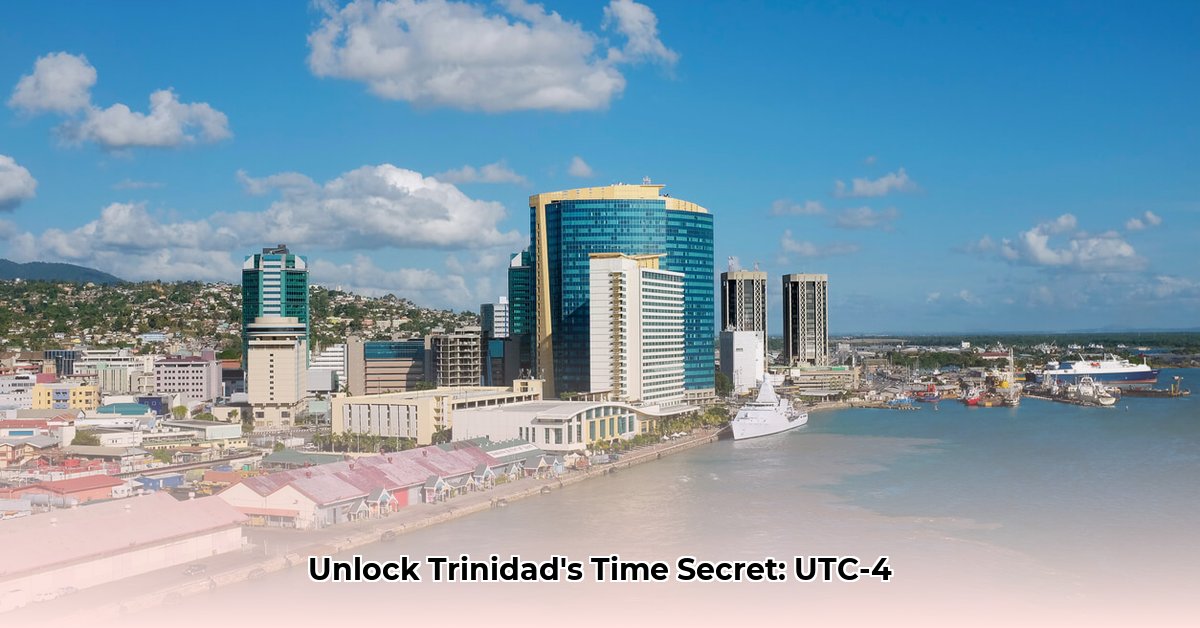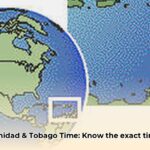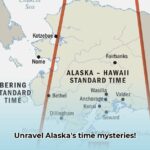Trinidad and Tobago observes Atlantic Standard Time (AST), which is consistently four hours behind Coordinated Universal Time (UTC-4). This comprehensive guide clarifies the nuances of Trinidad and Tobago’s time, offering practical advice for navigating its global implications. For more detailed information, see this helpful resource on Trinidad and Tobago time.
Understanding AST (UTC-4) in Trinidad and Tobago
Unlike many countries, Trinidad and Tobago does not observe Daylight Saving Time (DST). This permanent adherence to UTC-4, formally recognized as America/Port_of_Spain by the Internet Assigned Numbers Authority (IANA), provides consistency but requires careful consideration when interacting with other regions.
Implications for International Collaboration
While the fixed time zone simplifies local scheduling, it presents challenges for international interactions, especially with countries observing DST. A seemingly simple four-hour difference can fluctuate, requiring careful management.
Practical Strategies for Managing Trinidad and Tobago’s Time
Effective time management is crucial for seamless international collaboration. Here are actionable steps for businesses, travelers, and software developers:
International Businesses:
- Account for Time Differences: Always calculate the four-hour difference between AST and other time zones, particularly those observing DST.
- Utilize Scheduling Software: Employ tools that manage time zones and participant availability, explicitly stating all times in each location.
- Clear Communication: Confirm meeting times in writing, specifying each participant’s local time to avoid confusion.
Travelers:
- Pre-Arrival Adjustment: Before arriving, adjust your devices and mentally prepare for the local time to minimize jet lag and scheduling conflicts.
- Utilize Time Zone Apps: Download a reliable time zone app to your phone or smartwatch for easy reference and conversion.
Local Businesses:
- Consistent Scheduling: Leverage the simplicity of a fixed time zone for streamlined operations and predictable scheduling.
- Cross-Border Considerations: When interacting with international clients or partners, clearly communicate using local times and provide flexible communication options.
Software Developers:
- Accurate Time Zone Implementation: Ensure applications accurately interpret UTC-4 and recognize the absence of DST for proper functionality within Trinidad and Tobago.
- Time Zone Libraries: Utilize established time zone libraries and APIs to manage time conversions and DST adjustments automatically.
Scheduling International Meetings with Trinidad and Tobago
Scheduling across time zones necessitates careful planning. Consider these steps when coordinating meetings:
- Identify Time Differences: Use an online time zone converter to determine the precise difference between AST and other participants’ locations.
- Consider Working Hours: Respect varying business hours across locations, aiming for a time convenient for all participants.
- Prioritize Overlap: Seek a time slot that maximizes overlap within standard work hours.
- Utilize Meeting Scheduling Tools: Employ tools like Calendly or x.ai to manage time zones and participant availability.
- Communicate Clearly: Expressly state the meeting time in each participant’s local time to prevent confusion.
Trinidad and Tobago’s Time and International Trade
The fixed time zone offers advantages for international trade, simplifying scheduling and communication. However, potential mismatches with DST-observing regions necessitate proactive time management.
Navigating Time Zone Differences for Businesses in Trinidad and Tobago
Businesses operating in Trinidad and Tobago benefit from the following strategies:
- Time Zone Converters: Online tools eliminate time conversion errors, ensuring accurate scheduling.
- Asynchronous Communication: Embrace email, project management software, and other asynchronous communication tools for flexible collaboration across time zones.
- Clear Communication Guidelines: Establish clear communication protocols, defining expected response times to prevent frustration and delays.
The Future of Time in Trinidad and Tobago
While the current system is stable, future economic alignments or other factors could potentially influence time zone policy. Staying informed about any potential changes is advisable for businesses and individuals operating internationally.
- Master Crypto Trading: Sentiment Analysis Guide - June 24, 2025
- Master Crypto Fear & Greed Index Live: Smart Trading Guide - June 24, 2025
- Master Crypto Market Price Alerts: 2024’s Top Tools - June 24, 2025
















